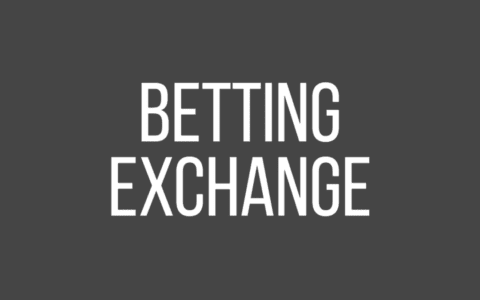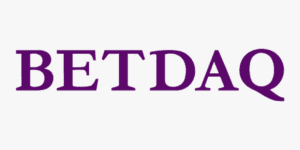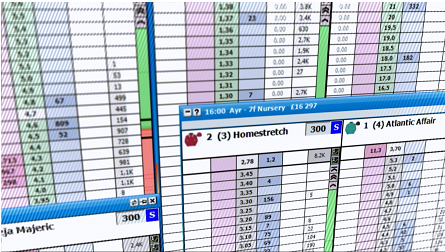- A betting exchange is a platform where individuals can bet against each other rather than against a bookmaker.

A betting exchange is an online platform that allows users to bet against each other on the outcome of events
What Is A Betting Exchange?
A betting exchange is an innovative online platform that revolutionises traditional betting by enabling individuals to bet against each other rather than against a bookmaker. It operates as a peer-to-peer betting marketplace, where users can both back (bet for) and lay (bet against) outcomes on sports events, offering flexibility and autonomy in setting odds.
Backing a bet entails betting on the event’s outcome to win, while laying a bet means betting against that outcome, providing a unique opportunity for users to play the role of both punter and bookmaker within their strategies.
Popular betting exchanges include Betfair, Smarkets, and Matchbook, facilitate a diverse array of markets and sports. Betting exchanges generate revenue by charging a commission on users’ net winnings, with commission rates typically being a percentage of profits, varying based on the exchange and the event type.
As with online bookmakers, betting exchanges are regulated by relevant gambling authorities, ensuring fairness and transparency.
Advantages Over Bookmakers
Betting exchanges offer several advantages over traditional bookmakers.
Perhaps the most significant advantage is that bettors can lay (bet against) against an outcome, effectively granting users the opportunity to assume the role of a bookmaker. This feature flips the traditional betting model on its head, empowering individuals to not only back outcomes they believe will occur but also to wager against those they anticipate won’t.
Another major advantage of betting exchanges is that users will regularly secure better odds on their bets. This is because prices are set by users rather than by a bookmaker; so there is often more competition and value.
Learn more about how bookmakers earn from their odds.
Betting exchanges also cater to professionals by providing users with remarkable flexibility, allowing them to set their own odds and stakes, and to act upon price movements. In particular, the ability to adjust bets in real-time during events enables users to minimise risks or secure profits as events unfold.
Pros & Cons of Betting Exchanges
Betting exchanges allow users to bet against each other, rather than against a bookmaker. Here are some of the main pros and cons of using betting exchanges:
Pros
-
Lay Betting
Betting exchanges allow users to bet against a particular outcome, as well as for it. This can be useful for hedging or when you think a particular outcome is overpriced.
-
Better Odds
Betting exchanges often have better odds than traditional bookmakers because they take a commission on all winnings rather than building a profit margin into their odds.
-
Professionals Allowed
Betting exchanges cater to professionals by providing a platform where they can apply their expertise and strategies to trade positions and capitalise on market opportunities.
-
Flexibility
Users can request odds, enter and exit positions, and adjust bets to manage risk as the odds fluctuate before and during events.
Cons
-
Liquidity
The viability of betting exchanges hinges on sufficient liquidity (volume of money available for betting). It may be difficult to obtain the desired odds/stakes in some markets.
-
Commission
Betting exchanges take a commission on winnings, which can make profitability challenging for some traders.
-
Complexity
Using a betting exchange requires some knowledge of how odds work and how to trade positions, which can be intimidating for novice bettors.
-
No Guarantees
There is no guarantee of a bet being matched or the ability to exit a position at a desired price on a betting exchange,.
Recommended Betting Exchanges
#ad. 18+, GambleAware.org, T&Cs Apply #ad. 18+, GambleAware.org, T&Cs Apply #ad. 18+, GambleAware.org, T&Cs Apply
Betting Exchange Articles
More Gambling Products
- LiveScore Bet Review | Features, Ratings & Expert Verdict [2025] - July 1, 2025
- How Fast Payments Are Changing Bankroll Management - June 30, 2025
- Matchbook Review | Trusted 2% Commission Betting Exchange [2025] - June 26, 2025






















